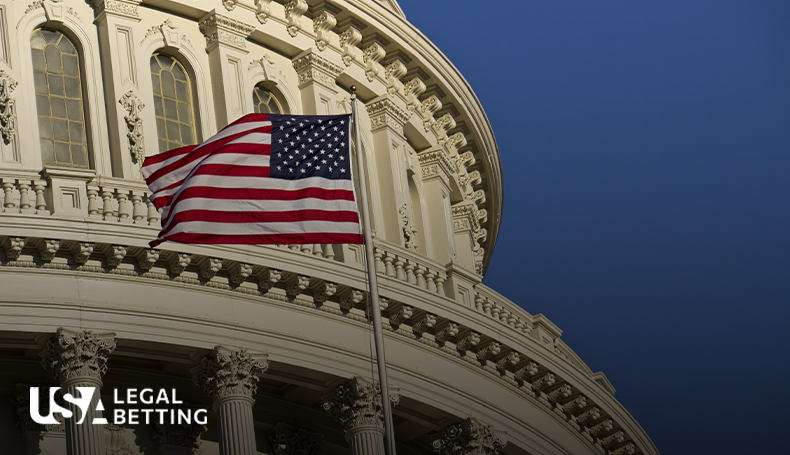The training wheels are completely off of the American gambling market. Although casinos have been legal for years, the rise of sports betting has brought the prevalence of all forms of gambling to the forefront of many Americans’ lives.
“From the traditional casino experience to online options, American adults’ demand for gaming is at an all-time high,” said AGA president and CEO Bill Miller. “Sustaining our momentum will take unified industry efforts around combating pernicious illegal operators and growing responsible gambling efforts in tandem with the growth of the legal market—both of which the AGA is committed to lead on throughout 2024.”
Even with Arizona (November) and Kentucky (November and December) unaccounted for, legal sportsbooks reported a combined $119.84 billion in total wagers (27.8% increase Y2Y).
Marquee events such as the Super Bowl, March Madness, and NBA Finals helped drive the handle, as did legalization efforts and market launches in Kentucky, Maine, Massachusetts, Nebraska, and Ohio.
Online sportsbooks weren’t the only ones left with fat bellies in 2023. States received a combined $14.4 billion in tax revenue from operators’ revenues.
New York, New Jersey, and Illinois all broke the $1 billion barrier in 2023 sportsbook revenue. This was the second straight year for New York ($1.697 billion) and the first for New Jersey ($1.007 billion) and Illinois ($1.002 billion).
New Jersey also started 2024 strong, setting a new state record with $1.72 billion in wagers during January. Sportsbooks’ revenue exceeded $170 million during that time—$115 million of which was from parlays—representing 136% growth Y2Y.
Meanwhile, the AGA already estimated $23.1 billion in wagers on Super Bowl LVIII, marking yet another record.



















